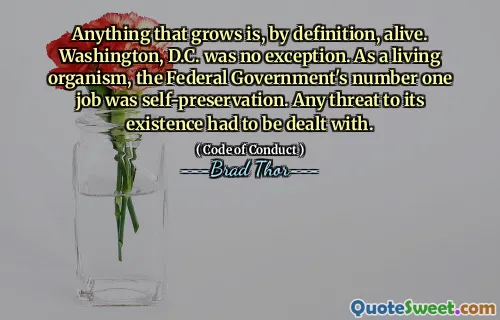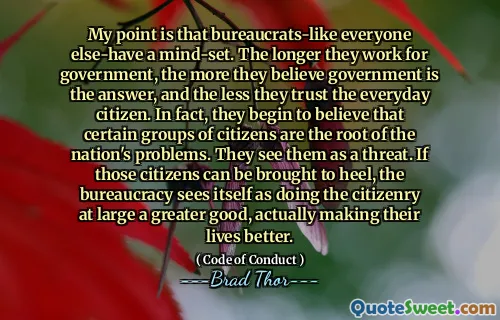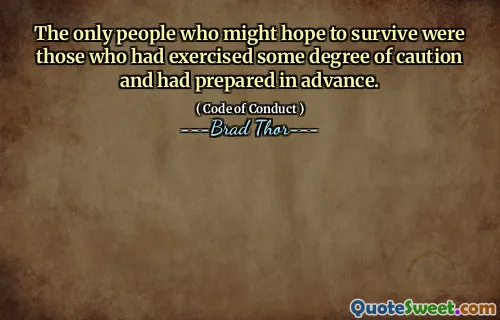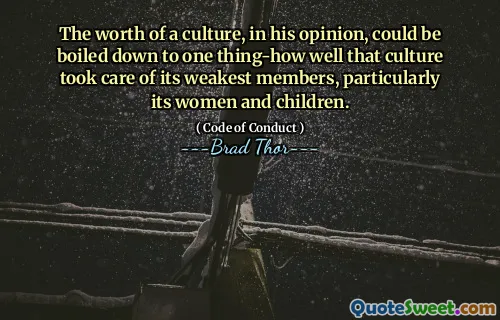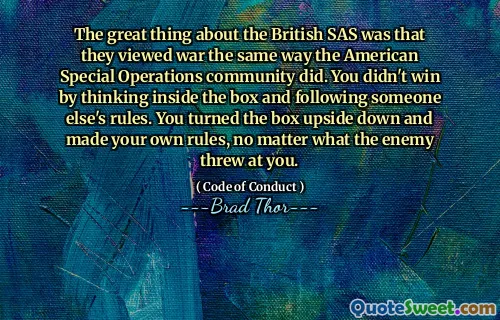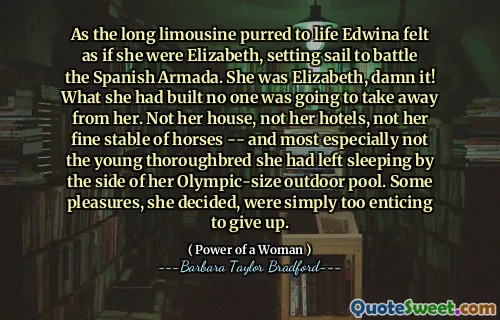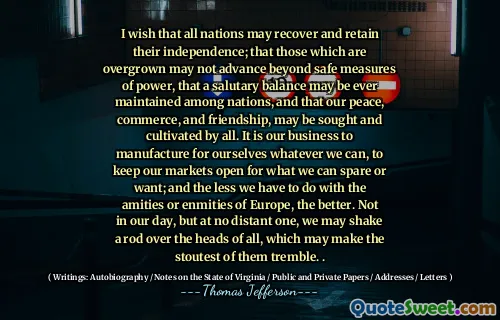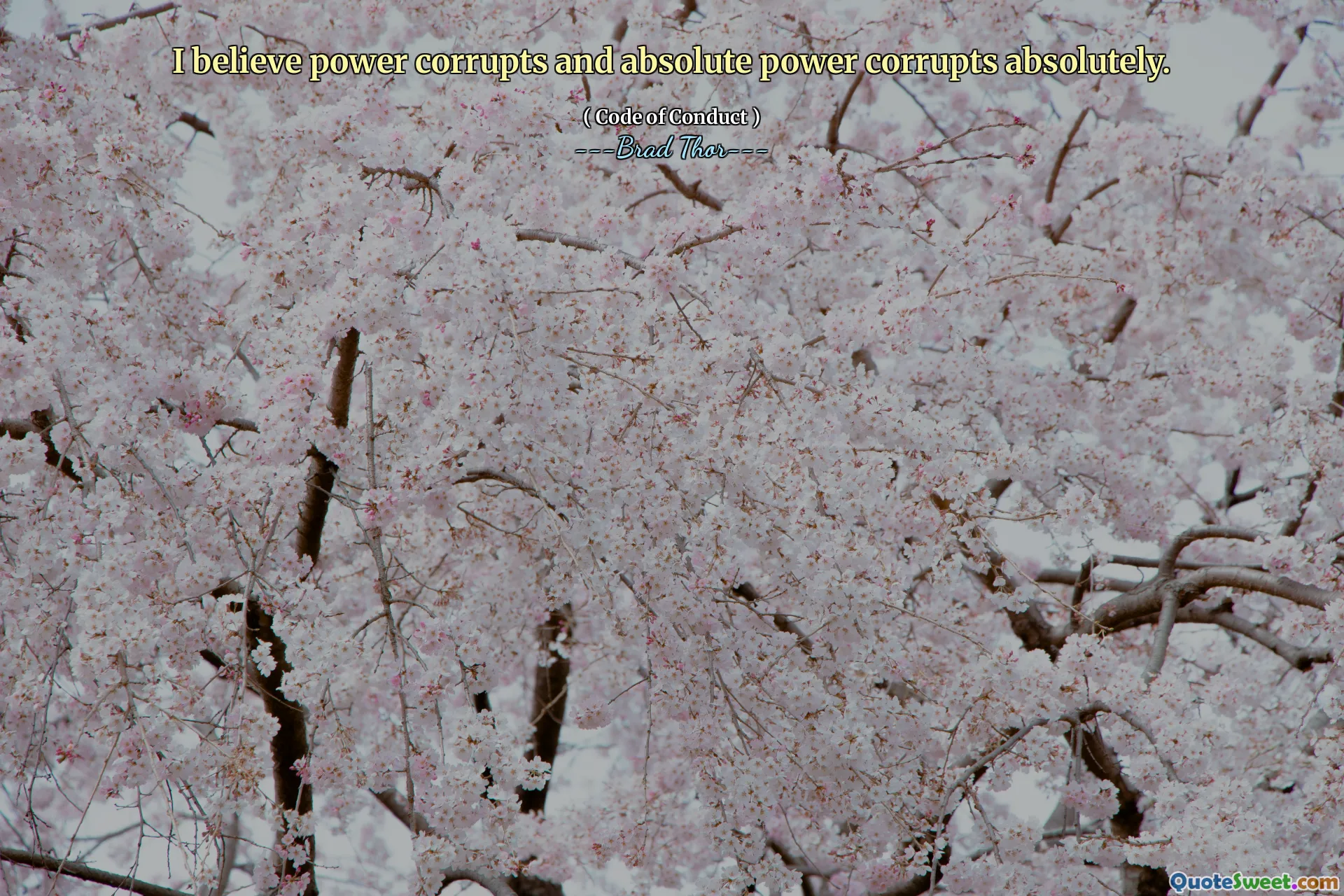
I believe power corrupts and absolute power corrupts absolutely.
The quote "I believe power corrupts and absolute power corrupts absolutely," attributed to Lord Acton, highlights the inherent danger of unchecked authority. It suggests that as individuals gain more power, their morality can decline, leading them to act in self-serving ways rather than for the common good. This idea resonates strongly in political and personal contexts, where the temptation to misuse power can have dire consequences.
In Brad Thor's "Code of Conduct," this theme of corruption through power is explored through the narrative, emphasizing the impact of leadership choices and ethical dilemmas faced by characters. The story illustrates how the pursuit of power can lead to moral decay, echoing the caution that having absolute power can ultimately result in absolute corruption, as those in power may prioritize their interests over those they are meant to serve.

